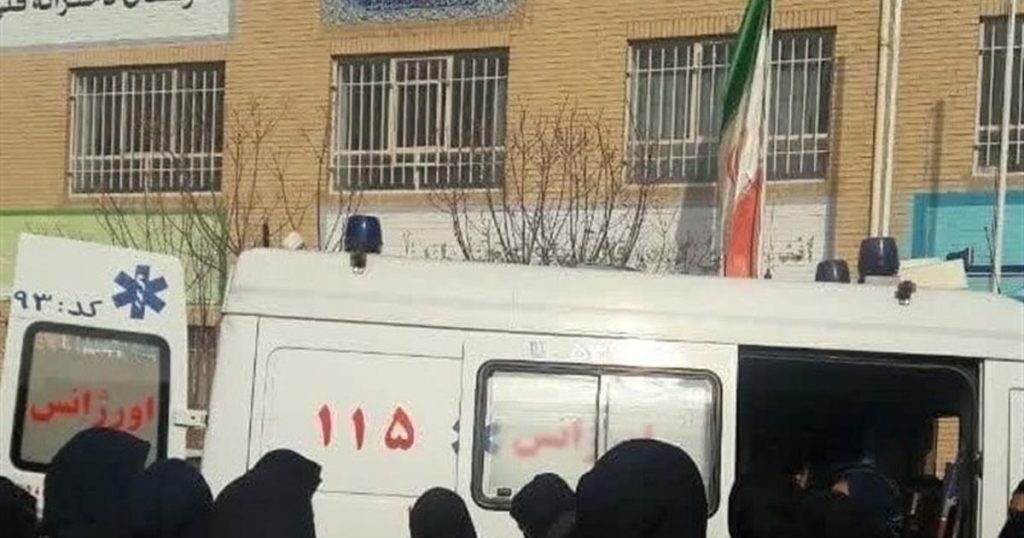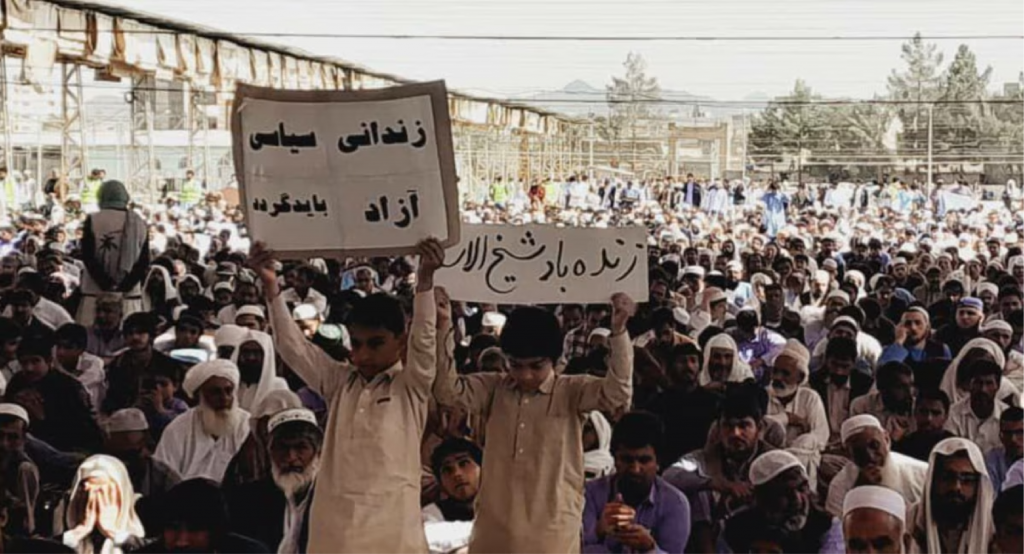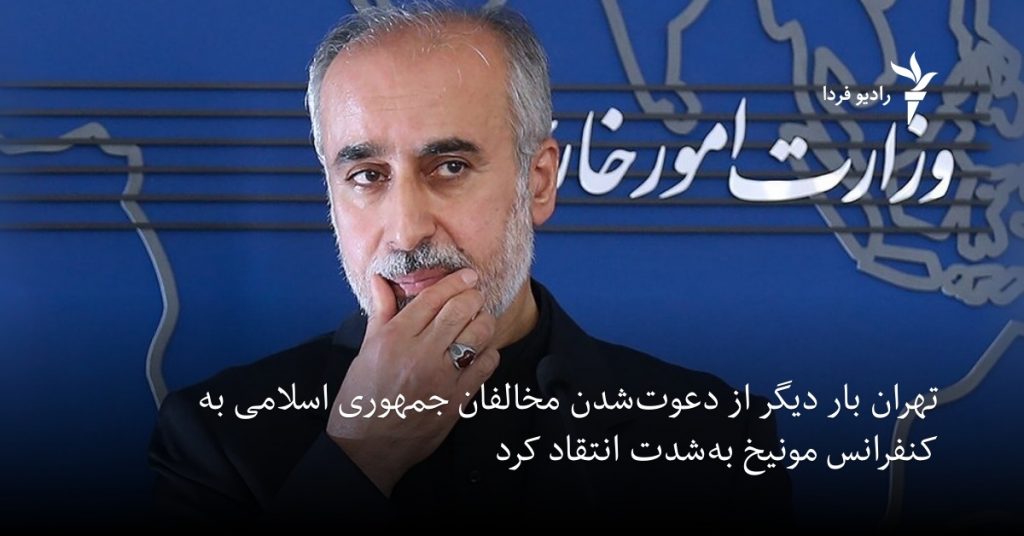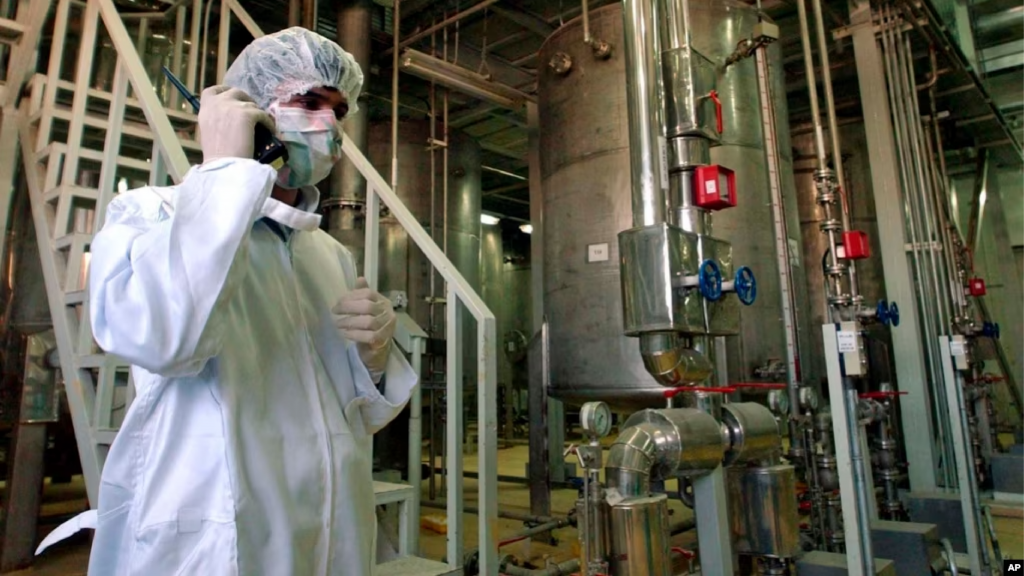
A Different Type of War
The editorial of Jahan Sanat reasons that Iran must try to use the economy as a tool in its fight against the United States.
The Iranian government has doubled down on the significance of fighting the United States as the leader of the free world and defeating this superpower in order to pave the way for its own development. On the other hand, the US administration has tried to bring about changes in the Iranian government’s behavior toward itself and its allies.
For four decades, these two have implacably adhered to their strategies, taking advantage of everything to weaken each other. The experience of this war shows that the United States has avoided full military engagement against hostile countries and has turned to hybrid warfare.
The United States has used the economic sanctions as the most efficient tool against the Iranian government. During the time of former President Barack Obama, this strategy was implemented step by step so it did not target the entirety of Iran’s economy suddenly and overwhelmingly. But since 2018, Donald Trump favored the new strategy of maximum pressure in putting sanctions on Iran’s economy. During this period, which ended with Trump’s electoral defeat, Iran faced difficulties in obtaining forex revenues.
Now, two years after the US Democrats’ assumption of power, the pressure of the economic sanctions on Iran has decreased, pursuing Joe Biden’s strategy which hoped for reaching an agreement over the nuclear deal with Iran. But despite all these efforts, we can see that the hostilities between Iran and the United States have not only not reduced but seem to have heightened.
What is ignored is these two countries’ employment of differing tools. The US administration uses economic tools to confront Iran, while Iranian leaders want to respond to the United States by increasing and developing different kinds of military equipment and arms.
Iran, because of its economic weakness, cannot keep up with the countries that are against the Iranian political system. If Iran cannot use economic tools in its war against the United States and its regional allies, it will have to face more failures. Today’s war is economic in nature, and this tool must be used.
The Promise of Controlling Inflation by Counting on People’s Resistance
The editorial of Arman Melli argues that it is not enough for the government to only rely on people’s resistance and cooperation for controlling the skyrocketing inflation rate. Iranian officials must have a feasible economic plan to counter highly inflated prices.
Recent remarks of Iranian President Ebrahim Raisi signaled a promise to control inflation. He stated that he will control inflation with the cooperation of the people and officials and will even reverse the situation.
These remarks were made while in recent weeks the value of the national currency has consistently and considerably dropped against foreign currencies. Past experience shows that in the short run, any increase in the price of the dollar will impact prices of all goods. This impact can be already seen in the automobile, gold and housing markets, and, just as before, it will soon be reflected in the prices of essential goods.
Under these circumstances, Raisi must consider his own plan for controlling inflation. What will bring peace to people and stability to the markets is a detailed plan for controlling inflation. Otherwise, the mere promise to control skyrocketing prices is nothing but empty words which will have no outcome but discrediting the person who makes such promises.
Raisi must point to his plan for controlling inflation. Do he and his team have any satisfactory plan for covering the budget deficit this year and the next? He must also explain to people what his economic plan is to stop the devaluation of the national currency against the dollar.
In other words, do Raisi and his team have any plans for controlling inflation, except counting on people’s cooperation and forbearance?
Necessity of Fixing Workers’ Wages Next Year
The editorial of Tejarat, penned by the workers’ representative in the Supreme Labor Council, argues that workers’ wages for the next Iranian year (starting March 21) must be adequately increased to cover their household expenses.
In recent weeks, the issue of the minimum wage for workers and employees has been extensively discussed in the media. Given the 40 percent rate of inflation in Iran, this issue is very significant so that the country’s workforce can provide for their minimum basic needs.
As is customary each year, we have seen that the Supreme Labor Council has held meetings for determining and ratifying the livelihood basket and the minimum wage for workers. In the first session, it was concluded that this year the policy of a regional wage cannot be implemented. Accordingly, the minimum wage must be determined on the national level.
Certainly, if we can decide on a number for the livelihood basket, it can be used for ascertaining the minimum wage for workers. The livelihood basket is an average of the minimum requirements of a family.
As for the regional wage, it must be noted that so far the necessary infrastructure has not been prepared for it. Apart from that, determining wages regionally can have huge consequences for big cities like Tehran and might result in more migration of workers to this city.
The wages paid to workers are not enough to cover their basic living requirements, and workers’ wages are always behind the inflation rate. That is because the minimum wage is determined based on the inflation rate of the previous year.
The number determined by the Wages Committee should not be less than 13 million tomans, given the inflation rate.
Now the expectation is that the government and employers will consider the economic pressures on workers and will determine wages based on household expenses.
The truth is that wages must increase adequately to cover workers’ minimum expenses. The law has stipulated that wages must be sufficient for covering workers’ livelihood expenses. We must all abide by the law.
The Market Always Reacts Correctly
The editorial of Arman Melli argues that Ebrahim Raisi’s recent trip to China had no economic consequences, which is why it has had no significant bearing on the Iranian market.
Measures recently taken by the United States and the EU will gradually end in Iran’s isolation on the international scene. On the other hand, when these measures are taken all together, we see that there is no hope for resuming the nuclear talks.
President Raisi’s trip to China had more political – than economic – implications. During. The tenure of former President Hassan Rouhani, they talked of a 25-year agreement in which China was supposed to invest $400 billion in Iran. But that level of investment in Iran is impossible and the Chinese are not after making such investments in Iran at all. China and Russia are not after huge investments in Iran because of the sanctions.
On the other hand, a large number of US Congressmen have backed the MEK as before, casting a shadow on the recent forum attended by Reza Pahlavi and seven other activists in Georgetown University.
In fact, Iran is not in good economic condition and is now facing new foreign policy complications every day. It seems that the Western countries have reached the conclusion that even if an agreement is reached with Iran over the nuclear deal, they will have to face other issues with Iran.
It must be concluded that it is impossible for the current situation to continue, and there will be further economic deterioration within the country, while, in the meantime, the international atmosphere will continue to turn against Iran.
Raisi’s trip to China will not reap economic benefits and the market is reacting accordingly: if China had shown interest in investing in Iran, forex prices would not have skyrocketed.

Links to Khamenei’s Supporters in Serial Poisoning of Girl Students

While the suspicious poisonings of girl students in Qom has continued for the past three months, Iranian authorities keep making contradictory remarks about this issue.
Although Education Minister Yousef Nouri claimed it was just a “rumor,” Parliament Member Mojtaba Zolnouri called it a “security” issue. The most recent comment, however, came from General Prosecutor Mohammad Jafar Montazeri who pointed to the “concerning trend of a kind of poisoning,” calling on the Qom prosecutor to investigate the matter. In a letter, Montazeri pointed to the “possibility of deliberate criminal measures” in this regard.
So far, more than 300 girl students with poisoning symptoms have been taken from schools to hospitals in Qom. The latest case involved 11 students who were hospitalized with respiratory issues, throat burn and nausea on February 19.
Meanwhile, Ali Saeidi, representative of Supreme Leader Ali Khamenei, blamed the “adversarial media” which “fuels rumors” about poisoned students, adding that they were hospitalized only as a consequence of their “underlying conditions.”
On the other hand, a number of activists have said that a radical Islamist group called “Devotees of Vilayat,” has claimed responsibility for poisoning students, saying their objective was to keep girl students at home. The radical group had published a pamphlet in which they stated studying is “haram” for girls, threatening that if girls’ schools were not shut down in Qom, they would poison girl students all over Iran.
In the same vein, Qom News published a report which noted that “Taliban views” could be perceived in these serial poisonings, adding that such measures aim at “terrorizing girl students and their parents as well as creating obstacles for their education.”
The report was removed from the Qom News website shortly after it was published.
Molavi Abdulhamid Calls for Referendum to Determine New Political System by People

Molavi Abdulhamid, an influential Sunni leader in Iran, announced on Friday that the only way out of the current political crisis in Iran is to hold a referendum so that the majority of the people can determine what political system must be established in Iran.
In his weekly Friday sermon in the eastern city of Zahedan, Abdulhamid pointed to the necessity of national unity and the solidarity of Iranians, urging that a referendum ascertaining the will of the majority was the only way to end the violence.
He underscored that people must choose their own rulers, saying that the only way to resolve the issues between the people and the government is by deferring to the opinion of the majority.
Abdulhamid added that no one should insist on his own way and understanding as the only possible way, urging that officials must listen to the majority of citizens and what they want their political system to be.
This is not the first time that Abdulhamid has called for holding a referendum. Shortly after the eruption of protests in September 2022 and the massacre of protesters in Zahedan, he denounced the widespread massacre and crackdown on the Iranian people, calling for holding a referendum supervised by international observers.
But Iranian officials reacted harshly and rejected this demand.
Abdulhamid’s demand for holding a referendum has found new significance because Mir-Hossein Mousavi, one of the leaders of the Green Movement, has also for the first time called for a referendum.
In his recent remarks, Abdulhamid once again condemned the execution of prisoners and obtaining coerced confessions from detainees, calling for the release of all political prisoners.
After Friday prayers in Zahedan, people held anti-state protests in this city which have been ongoing over the past months.
Despite strict security measures in this city, the protesters chanted “Death to the dictator” and called for the release of all political prisoners.
Tehran Slams Inviting Reza Pahlavi, Other Dissidents to Munich Security Conference

The Munich Security Conference held this year excluded Iranian government officials; instead a number of dissidents, including Prince Reza Pahlavi, were invited and delivered speeches, calling for an end to international support for the Iranian ruling system.
Iran denounced the invitation of Iranian dissidents as a “blatant intervention in its domestic affairs.”
Iran’s Foreign Ministry spokesperson said that the conference organizers invited “notorious” people instead of inviting government officials. Nasser Kana’ani called this year’s Munich conference “a great disgrace,” expressing hope that Iranian government representatives would be invited to this conference.
This year, no officials from Russia, North Korea and Iran were invited to Munich.
This is not the first time that Iran’s Foreign Ministry spokesperson has reacted to the exclusion of government representatives from this conference. Earlier, Kana’ani, in his reaction to the meeting between Western officials and figures from Iran’s opposition forces, including Masih Alinejad, criticized French President Emmanuel Macron, calling these dissidents “clowns.”
He had also said that if the goal of holding the conference is to strengthen security regionally and internationally, then not inviting certain countries must be politically motivated.
Three prominent Iranian dissident figures – Prince Reza Pahlavi, Masih Alinejad and Nazanin Bonyadi – took part in the panel discussion entitled “Woman, Life, Freedom” which was held on the sidelines of the conference. Chair of the US Senate Foreign Relations Committee Bob Menendez and Germany’s representative in the European Parliament Hannah Neumann were also present.
Participants explained that the recent protests in Iran are different from the past as they have targeted the Iranian political system.
Masih Alinejad stated, “I am happy to see that for the first time, I don’t see dictators from Iran and Iranian people’s representatives are invited to the conference.”
Reza Pahlavi urged that the global community must maximally back Iranian society and put maximum pressure on the Iranian government.
IAEA Found 84 Percent Uranium Enrichment; Tehran Denies It

Bloomberg recently reported that IAEA inspectors have detected uranium enriched at 84 percent at Iran’s nuclear facility. The IAEA has confirmed the existence in its report, while the Iranian government has denied this level of enrichment.
Spokesman for Iran’s Atomic Energy Organization Behrooz Kamalvandi described the report as a “manipulation of the truth and demonizing Iran,” while Iranian Foreign Ministry Spokesman Nasser Kana’ani underlined Iran’s commitment to the NPT, Comprehensive Safeguards Agreement, and cooperation with the IAEA.
IAEA inspectors detected traces of 84 percent enriched uranium at Iran’s nuclear facilities, but they still do not know if this level of enrichment was deliberate or the result of accidental sedimentation in centrifuges.
Kamalvandi underscored that the existence of uranium particles enriched at more than 60 percent does not necessarily mean that there has been uranium enrichment by more than 60 percent. He called this “very natural” in the process of enrichment, adding that what is important is the final product and Iran has not enriched uranium above 60 percent.
84 percent uranium enrichment is close to the level needed for producing nuclear weapons.
In late January, the IAEA warned about unannounced changes in Iran’s nuclear facilities in Fordow, stating that the agency was not informed of the connection of two enrichment cascades of centrifuges at the Fordow nuclear facility. Iran alleged at the time that the change was “accidentally” made.
Iran had earlier informed the IAEA of 60 percent uranium enrichment.
Earlier, Kamal Kharazi, senior foreign policy advisor to Ali Khamenei, said that Iran has the capacity of building nuclear weapons, but does not intend to do so.
Former senior official Mohammad Javad Larijani also said that if the Iranian government wants to move toward building nuclear weapons, no one can stop it.
